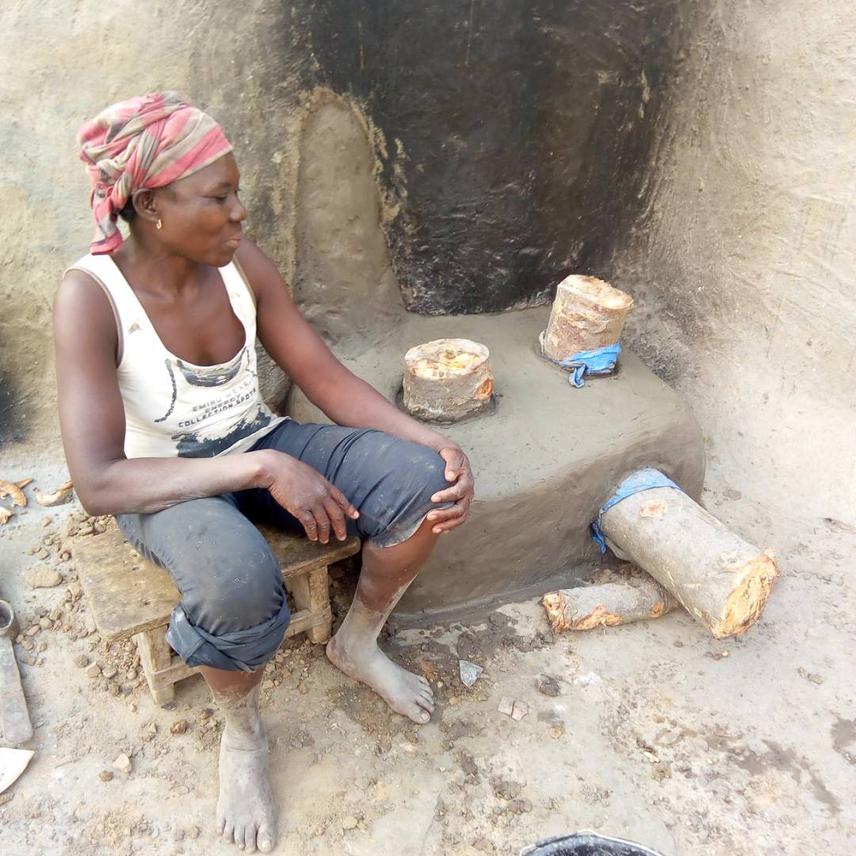Abigail Serwaa Akoto Bawua
This project’s overall aim is to combat desertification by empowering rural women to use fuel-efficient cook stoves that can reduce their fuelwood demand by as much as 60%.

Tree-felling for fuelwood is a major contributor to northern Ghana rapidly turning into a ‘wasteland.’ Presently, desert advancement in northern Ghana alone stands at 0.8km per annum, resulting in the vegetation cover needed to support ecological diversity particularly in Upper East Region already fallen below threshold by 5%. Studies show that local women constitute the largest collectors and users of fuelwood especially for domestic consumption. Unfortunately, they are ignorant of how their activities negatively impact on the environment and the subsequent consequences on daily life. Yet, they are woefully underrepresented in the fight against desertification even though they form the majority of local consumers, are powerful in influencing sustainable consumption decisions and impact newly acquired knowledge onto future generations. Therefore, through this project, we will empower rural women in the use of fuel-efficient cook stoves to reduce their fuelwood demand starting in Chiana in the Upper East Region.
Specifically, we will build the capacity of 400 local women in the construction of fuel efficient cook stoves to replace their traditional three-stone stoves. Additionally, to ensure sustainability of the project and further promote our message among thousands, we will establish the first ever women’s environmental advocacy group, ‘Women Movement for Environmental Balance’ (WOMB). Together with WOMB members, we will embark on house-to-house and school campaigns; organise two radio and video shows each; celebrate the annual UN’s World Day to Combat Desertification; and distribute educational materials (a 5-paged translated energy-efficient user manual; 1,000 flyers and 100 pictorial posters). The successful completion of this project in the first year will at least lead to a reduction in fuelwood demand by these 400 local women by as much as 60%. We also anticipate to reach an estimated 6,000 local people mostly other women directly with our message. Implicitly, important tree species used locally as fuelwood such as the Vulnerable Shea tree (Vitellaria paradoxa), Rosewood (Dalbergia nigra), and the African Baobab (Adansonia digitata) will be protected.